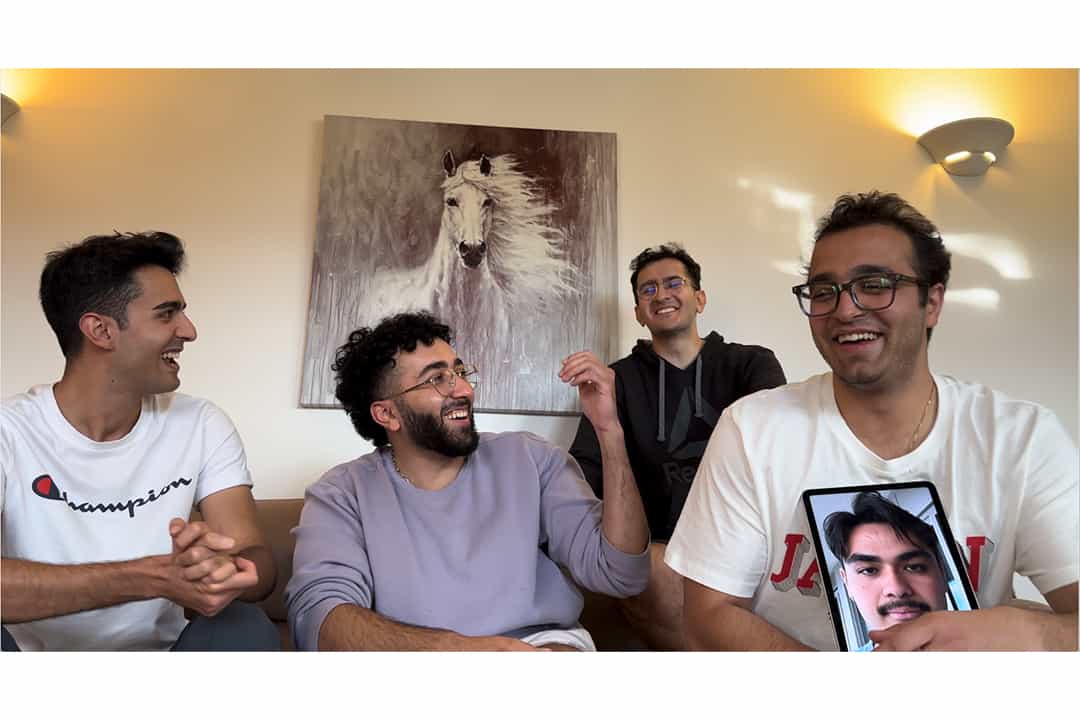A team of entrepreneurs is currently leveraging generative artificial intelligence (AI) to build an app called Penseum, which they hope will make university courses easier for students.
The Penseum company is a part of MaRS, an incubating service for tech startups based in Toronto and a partner organization with U of T.
Generative AI has taken over headlines since ChatGPT was launched last November and has become some students’ best friend. A survey from the American information website Best Colleges found that one in five of the 1000 college students it surveyed had used AI tools such as ChatGPT in some capacity on their assignments or exams.
Universities and individual professors, including at U of T, have since considered policies regulating how these tools can be used in coursework.
Penseum users can upload course material to their software to receive personalized study guides, flashcards, and practice questions. The software also offers a chatbot that analyzes the content that individual users upload and then answers users’ questions about that content.
Based off the university student experience
“This product came mainly out of our personal experiences,” co-founder Samit Khalsa told The Varsity in an interview. Many students struggle when transitioning from high school to university, especially as they begin to acquaint themselves with the large lecture sizes, Khalsa explained.
However, fellow co-founder Kamyar Hosseini noted that professors tend to use a “cookie-cutter approach” to teaching students various subjects, without considering the differences in their studying styles, which can be detrimental to students’ success. “You have lectures that go on for three hours and students don’t learn anything,” he said.
Hosseini also described that educational systems have been slow to change their methods even though far more effective systems exist. This is why the co-founders chose to design their tool around education, Hosseini said — it was the area where they felt they could have the most impact.
A quick journey from the idea to the market
Penseum’s journey is impressive, given that the founders only devised the idea eight weeks ago. Khalsa and Hosseini incorporated the company three weeks after that, on August 14, and then started distributing its minimum viable product — the early version of the tool — to get feedback from some test users. Now, they currently have a beta version of Penseum available for early users to try out.
Penseum also does not depend on funding from external investors. The company uses the “bootstrap model” — all of its funding comes from the founders’ personal finances and whatever revenue the company can collect as it begins to operate.
This is not the first time Khalsa and Hosseini have been involved in a start-up. The two established a software development company three years ago before creating Penseum. Hosseini noted that this experience was crucial in letting them hit the ground running and keep up their morale this time around.
“You have to kind of have that grit and kind of mental resilience and emotional resilience because you launch and no one cares. No one uses your platform. And if you give up, then the world will never know how good your platform is,” Hosseini said.
Indeed, the company had trouble getting engagement with their product on social media in the beginning, receiving only 10 or 20 views on their videos. “At that point, if you don’t truly believe in [your project], you’d probably give up,” Khalsa said. Eventually, though, their product began to receive more attention. In fact, the Penseum beta is currently not allowing any more sign-ups due to limited capacity.
Learning from their start-up journey
Having been a part of the start-up industry for some years, Khalsa and Hosseini have a lot of advice for budding student entrepreneurs.
Hosseini emphasizes the importance of adaptability. “You may have a plan. The plan, 99 per cent of the time, doesn’t work.” Being able to pick yourself back up after making mistakes or facing changes is therefore essential, he said.
“Take a chance on yourself,” said Khalsa. Many students often have great ideas but do not have the confidence to invest in themselves. Yet, someone else might have the same vision and decide to pursue it, resulting in success. Khalsa highlighted the importance of taking initiative once you develop an idea.
Right now, the founders noted that they have been “talking to cognitive scientists” and plan to implement educational techniques based on cognitive science in Penseum in the future. For example, Hosseini pointed to the strategy of spaced repetition, in which the student reviews information in multiple, spaced-out sessions, rather than all at once.
Penseum’s ultimate goal is to make learning more effective, in whatever way that might be in the future.



No comments to display.